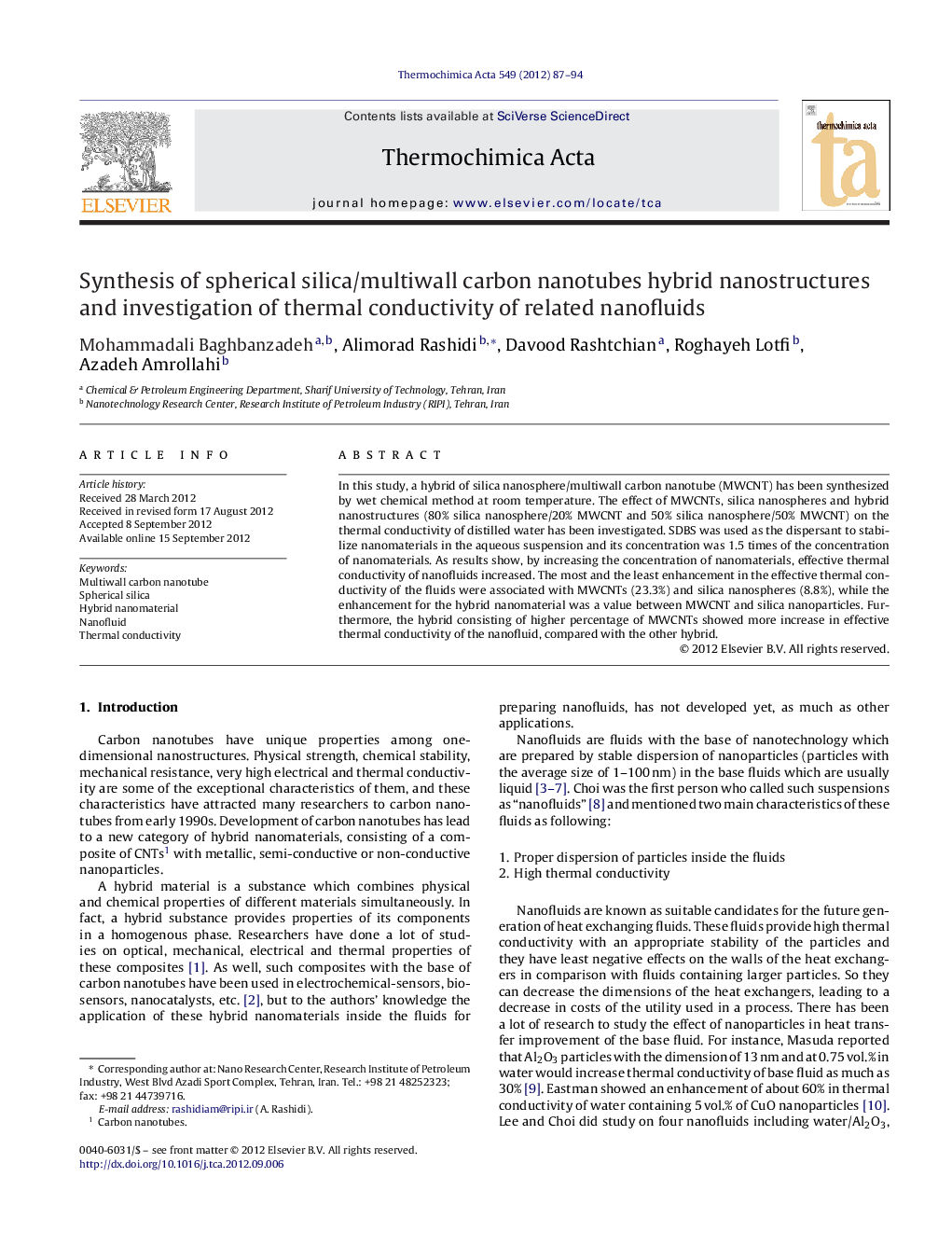| Article ID | Journal | Published Year | Pages | File Type |
|---|---|---|---|---|
| 673979 | Thermochimica Acta | 2012 | 8 Pages |
In this study, a hybrid of silica nanosphere/multiwall carbon nanotube (MWCNT) has been synthesized by wet chemical method at room temperature. The effect of MWCNTs, silica nanospheres and hybrid nanostructures (80% silica nanosphere/20% MWCNT and 50% silica nanosphere/50% MWCNT) on the thermal conductivity of distilled water has been investigated. SDBS was used as the dispersant to stabilize nanomaterials in the aqueous suspension and its concentration was 1.5 times of the concentration of nanomaterials. As results show, by increasing the concentration of nanomaterials, effective thermal conductivity of nanofluids increased. The most and the least enhancement in the effective thermal conductivity of the fluids were associated with MWCNTs (23.3%) and silica nanospheres (8.8%), while the enhancement for the hybrid nanomaterial was a value between MWCNT and silica nanoparticles. Furthermore, the hybrid consisting of higher percentage of MWCNTs showed more increase in effective thermal conductivity of the nanofluid, compared with the other hybrid.
► A hybrid of silica nanosphere/MWCNT was synthesized by wet chemical method. ► SDBS was the best surfactant for preparing stable nanofluids. ► MWCNTs caused the most increase in thermal conductivity of distilled water. ► The least enhancement in effective thermal conductivity belonged to silica nanofluids. ► The hybrid influenced thermal properties of water better than silica nanoparticles.
